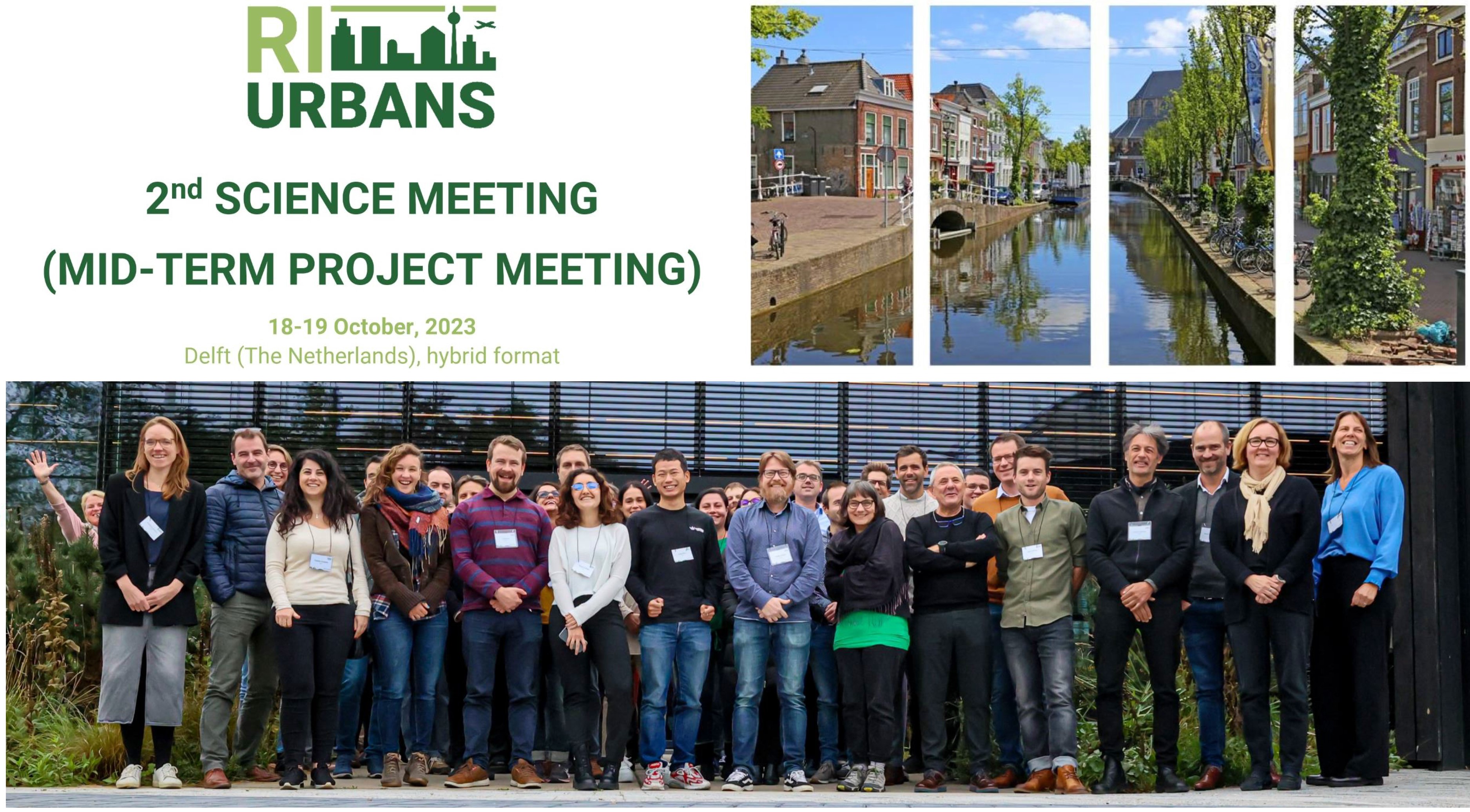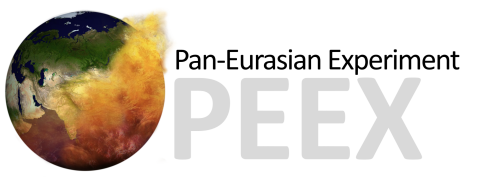Project Description

The 2nd Science Meeting of the EC Horizon-2020 RI-URBANS project (https://riurbans.eu) took place in a hybrid mode (onsite/online) during 18-19 October 2023 in Delft, The Netherlands. This event attended more than 120 participants including 60 persons onsite. The Science Meeting targeted to demonstrate on how Service Tools (STs) from atmospheric Research Infrastructures (RIs) can be adapted and enhanced to provide advanced air quality (AQ) measurements in European cities and industrial, harbor, airport, and road traffic hotspots, as well as areas with significant levels of air pollution and associated health effects.
The RI-URBANS project combines advanced scientific knowledge and innovative technical work to develop pilot STs that will enhance the capacity of the Air Quality Monitoring Networks (AQMNs) to provide the necessary observations to evaluate, predict and abate urban air pollution. The project is directly connected with ACTRIS (Aerosol, Clouds and Trace Gases Research Infrastructure; http://www.actris.net) and ICOS (Integrated Carbon Observation System; https://www.icos-cp.eu) in terms of use of STs, networking supersites, and data management. The RI-URBANS focuses on human exposure to outdoor ambient ultrafine particles (UFP, particle number concentrations, PNC and particle size distribution, PSD), atmospheric particulate matter (PM, in mass concentration) in terms of their sizes and constituents, as well as their gaseous precursors (including volatile organic compounds, VOCs and ammonia, NH3).
The Science Meeting scope included the following major topics: (i) results and outputs of evaluation for the first 18 months (Oct 2021 – Mar 2023); (ii) Pan-European reports on advanced AQ parameters; (iii) open access of compiled datasets and dataflow towards ACTRIS; (iv) service tools based on 3D measurements; (v) analysis of health outcomes, city mapping, citizen involvement, pollution, hotspots; (vi) first results on emission inventories and modelling; (vii) progress in development and application of RI-URBANS pilots; (viii) support in implementation of new AQ Directive on UFP in hotspots and advanced AQ parameters in supersites; (ix) progress of upscaling actions and case study of upscaling for Warsaw, Poland.
The Science Meeting goal was to involve AQ policy stakeholders in the interpretations and discussions of the project results, as well as pilots (P#) and STs applications. The RI-URBANS pilots focused on demonstration of the following STs: (P1) Near-real-time PM source apportionment; (P2) Near-real-time UFP-PSD; (P3) Mapping, 3D, mobile measurements and citizen science; (P4) Health effects of advanced AQ parameters and source contributions; and (P5) AQ in and from urban hotspots (traffic, airports, industry, harbors). For this event, RI-URBANS invited AQ policy stakeholders, experts from DG-ENV, DG-SANTE, EEA, EMEP, WMO, and WHO as well as representatives of selected cities, regions and countries involved in the pilot studies and others with potential interest in the STs.
During the first day, on 18th Oct 2023, the comments were given for the RI-URBANS project from the EC Project Officer (Gustavo Naumann) followed the project coordinators (Xavier Querol and Tuukka Petäjä) presentation about the RI-URBANS progress report and outputs of the evaluation for the first 18 months. A series of invited talks followed: (i) Progress of WHO on AQ and Health and on new AQ parameters (Roman Perez Velasco, WHO); (ii) EU STARGATE project on ultrafine particles in airports (by Jan Peters, Martine Van Poppel, VITO); (iii) Oxidative potential of PM and components: where we are to reach harmonisation? (by Gaelle Uzu, University Grenoble); (iv) Lessons learnt from 10 years boundary-layer research in the Amsterdam Atmospheric Monitoring Supersite (by Gert-Jan Steeneveld, Wageningen University).
The progress reporting on each WP and corresponding tasks was delivered by members of the RI-URBANS consortium, and followed by discussion and planning of next steps. WP1 stressed topic on what should be known about UFP and PNSD in terms of urban AQ, and in particular, about PNSD, PNC, eBC, absorption, Chemistry offline and online, VOCs/NH3, recommendations for source apportionment techniques for PM and emerging pollutants, service tool for NRT source apportionment, developing products and methods for AQ from profiling observations. WP2 concentrated on topics of health effects of air pollutants, conventional versus advanced AQ parameters, oxidative potential, urban mapping, and synergy support. Poster session started (and continued on the 2nd day), RI-URBANS website progress and Steering Committee meeting took place at the end of the first working day.
During the second day, on 19th Oct 2023, the reporting on other WPs progress continued. WP3 reported on modelling UFP in Europe; urban dispersion, street scale and vertical structure; emissions – UFP, downscaling, top-down and bottom-up; regional modelling (OP, UFP, BC, VOCs); implementing novel AQ indicators in tools supporting policy decision making to improve citizen health.WP4 stressed on what will be delivered for 3D measurements for AQ that can be offered to stakeholders to be implemented; aerosol source apportionment; aerosol number size distribution; novel health indicators; urban mapping; pollution hotspots; collaboration between RI-URBANS and ICOS-Cities pilots. WP5 reporting started with an example supporting implementation (DEFRA’s network of supersites); and continued with updates on data management plan and data gathered; establishing data quality controls to upscale; implementing modelling framework; case study for replicating RI-URBANS in Warsaw, Poland; road map for upscaling.
Detailed programme of the 2nd Annual Science Meeting is available at: https://riurbans.eu/event/ri-urbans-2nd-science-meeting
Reported Deliverables and achieved Milestones are available at: https://riurbans.eu/project/#deliverables-and-milestones
Peer-reviewed publications are available at: https://riurbans.eu/results/#publications
Text by: Xavier Querol, Tuukka Petäjä, Marta Monge Azemar, Alexander Mahura
